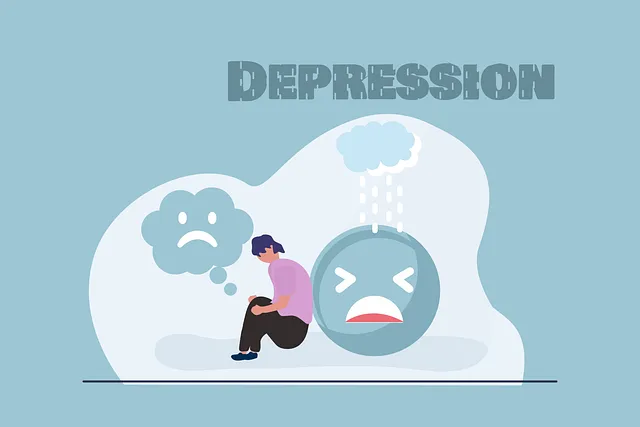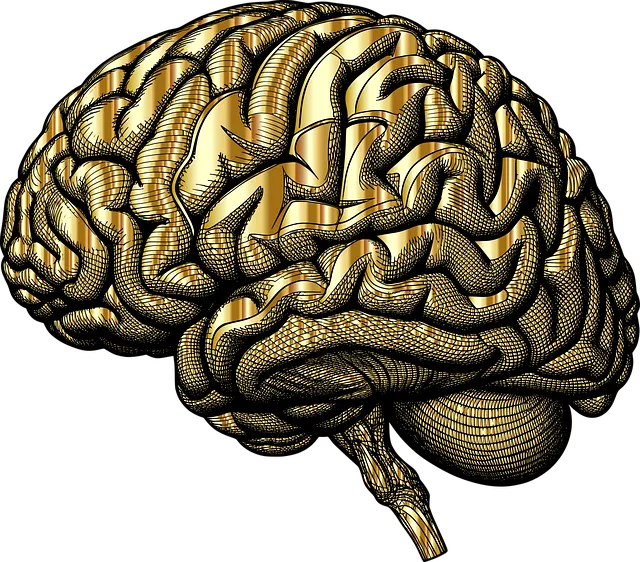The Lone Tree Kaiser Permanente mental health center emphasizes the importance of coping skills for managing life's challenges and promoting emotional well-being. They offer a comprehensive approach through individual therapy, group sessions, workshops, and Public Awareness Campaigns, teaching techniques like mindfulness, deep breathing, problem-solving, and social support building. The center prioritizes self-care practices, Compassion Cultivation Practices (CCP), and Mental Wellness Journaling to equip individuals with effective coping strategies for stress reduction and improved quality of life.
Coping skills are essential tools for navigating life’s challenges and maintaining mental wellbeing. This article explores the significance of these skills, highlighting the crucial role played by institutions like Lone Tree Kaiser Permanente Mental Health Center in teaching effective coping strategies. We delve into various techniques for managing stress and anxiety, while also discussing practical application and long-term benefits for overall mental health. By understanding and cultivating these skills, individuals can better cope with life’s twists and turns.
- Understanding Coping Skills and Their Significance
- The Role of Lone Tree Kaiser Permanente Mental Health Center in Teaching Coping Strategies
- Effective Coping Skills for Managing Stress and Anxiety
- Practical Application and Maintaining Long-term Mental Wellbeing
Understanding Coping Skills and Their Significance

Coping skills are the strategies individuals use to navigate life’s challenges and manage their emotional well-being. They play a pivotal role in mental health, especially for those seeking support at facilities like the Lone Tree Kaiser Permanente mental health center. Understanding what coping skills are and why they matter is essential for promoting resilience and overall well-being. These skills can range from simple techniques like deep breathing or meditation to more complex strategies such as problem-solving and social support networks.
At the Lone Tree Kaiser Permanente mental health center, Compassion Cultivation Practices (CCP) and Trauma Support Services have been implemented with success. CCP focuses on cultivating self-awareness and kindness towards oneself and others, which can help individuals develop healthier coping mechanisms. Public Awareness Campaigns Development also plays a crucial role in educating the community about various coping strategies, reducing stigma around seeking mental health support, and fostering a culture of care.
The Role of Lone Tree Kaiser Permanente Mental Health Center in Teaching Coping Strategies

The Lone Tree Kaiser Permanente Mental Health Center plays a pivotal role in equipping individuals with effective coping skills to navigate life’s challenges. This specialized center offers a safe and supportive environment where clients can learn and practice various stress reduction methods and conflict resolution techniques. Through individual therapy, group sessions, and workshops, the center provides a comprehensive approach to mental well-being.
Trained professionals at Lone Tree Kaiser Permanente mentor clients on identifying triggers, managing emotions, and adopting healthy coping strategies. They teach mindfulness practices, cognitive reframing, and other evidence-based methods to enhance stress management. By fostering resilience and promoting self-care, the center empowers individuals to better handle stressful situations, resolve conflicts constructively, and ultimately improve their overall quality of life.
Effective Coping Skills for Managing Stress and Anxiety

At the Lone Tree Kaiser Permanente mental health center, professionals emphasize the importance of developing effective coping skills to manage stress and anxiety. These skills are vital tools in navigating life’s challenges and promoting emotional healing processes. By integrating self-care practices into daily routines, individuals can foster resilience and better cope with demanding situations. Simple yet powerful techniques such as mindfulness meditation, deep breathing exercises, and progressive muscle relaxation help reduce tension and restore calm.
In addition to these individual practices, social skills training plays a crucial role in enhancing coping abilities. Building strong connections and fostering open communication with loved ones can provide a supportive network during stressful times. The Lone Tree Kaiser Permanente mental health center offers comprehensive programs tailored to teach effective coping strategies, ensuring individuals are equipped to face life’s uncertainties with greater confidence and emotional well-being.
Practical Application and Maintaining Long-term Mental Wellbeing

At the Lone Tree Kaiser Permanente mental health center, coping skills development is approached holistically, integrating practical application and ongoing support for long-term mental wellbeing. Beyond traditional therapy sessions, clients engage in hands-on exercises like social skills training, which equips them with effective communication and interpersonal strategies to navigate challenging situations. Additionally, compassion cultivation practices are woven into the fabric of treatment, encouraging empathy and understanding, key components for building resilient relationships and mitigating stress.
Encouraging sustained mental wellness, the mental health center also provides guidance on Mental Wellness Journaling Exercises. This introspective practice allows individuals to track their emotional states, identify triggers, and celebrate progress. By documenting experiences and cultivating awareness, clients gain valuable insights into their coping mechanisms, fostering self-awareness and empowering them to maintain their mental wellbeing even outside clinical settings.
Coping skills development is a vital aspect of maintaining long-term mental wellbeing, as highlighted by the expertise of the Lone Tree Kaiser Permanente mental health center. By understanding and adopting effective coping strategies, individuals can better manage stress and anxiety in their daily lives. The practical application of these skills, as demonstrated by the center’s programs, ensures that people leave equipped to navigate life’s challenges with resilience and adaptability. This holistic approach to mental healthcare is a game-changer, fostering not just short-term relief but also enduring emotional fortitude.

